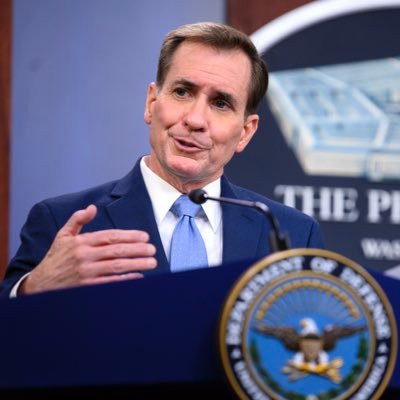There is something very odd about the US Navy’s intrusion into India’s exclusive economic zone (EEZ). At a time when the two countries, which are the world’s largest democracies, are coming together on strategic matters in the Indo-Pacific, this act comes as a jarring note. There seems to be something fishy here, something more than that meets the eye.
On Wednesday, the US Navy said that on it had conducted a freedom of navigation operation (FONOPs) in Indian waters. Further, it added, this was “without requesting India’s prior consent.” The announcement by the US Navy was no less offensive than the act itself. As former Navy chief Admiral Arun Prakash tweeted, “…For the 7th Fleet to carry out FoN missions in Indian EEZ in violation of our domestic law is bad enough. But publicizing it?”
New Delhi’s reaction to the insolent act and announcement was measured and prudent. The Ministry of External Affairs said, “The government of India’s stated position on the United Nations Convention on the Law of the Sea is that the Convention does not authorize other States to carry out in the exclusive economic zone and on the continental shelf, military exercises or maneuvers, in particular those involving the use of weapons or explosives, without the consent of the coastal state.”
This, however, did not sober the hotheads in the US’ military establishment. The Pentagon remained stubborn in its stance over the issue. Responding to India’s reaction, Pentagon spokesperson John Kirby said yesterday: “I can tell you is that the USS John Paul Jones, a Navy destroyer, asserted navigational rights and freedoms in the vicinity of the Republic of the Maldives by conducting innocent passage through its territorial sea in normal operations within its exclusive economic zone without requesting prior permission.”
The US Navy’s excursion looks like more than the assertion of navigational rights and freedoms; it may an attempt to sour, if not end, the growing proximity between India and the US. The country most worried about this proximity is China; and China has many assets in the US.
It is quite well documented how the Chinese Communist Party has been able to infiltrate its members and assets in not only the official machinery in the US but also in academia, media, and other opinion-making apparatuses. These were the people who squirmed at the mention of terms like ‘China virus’ and ‘Wuhan virus’ by former US president Donald Trump and his ministers. They were the people who, unlike Trump, favored engagement with Beijing.
Owing to Trump’s persistence to counter China, his successor Joe Biden has been forced to continue his predecessor’s China policy. This is the reason that there has not been any slackness in the Quad after Trump’s exit.
This may have constrained the pro-China group, but its toxicity is intact. The so-called assertion of navigational rights and freedoms may be the result of that toxicity.
